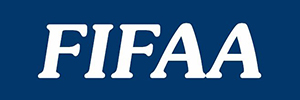FIFAA is international fashion, sports retailer and distributor operating in Estonia, Latvia, Lithuania and Finland.
FIFAA was founded in 1993 as a promowear and business gifts producer in Estonia. Company grew fast and evolved into other regions and areas of business that included distribution of sporting and lifestyle goods. It was only natural that the next step was to move into retail. One of the best known trademarks “Sportland” was born in FIFAA and was part of the group until year 2001 when restructuring separated this concept into independent company.
Today FIFAA Group is operating 40 fashion, accessories and sporting goods stores across Baltic Countries and Finland. There are more than 250 people working in the group companies and stores

The seed of the company – promowear and business gifts division – is still strong and important part of company operations. AS FIFAA and its subsidiary SIA ERVITEX combined are holding biggest share of the market in this business sector.
FIFAA Group is present in all biggest shopping malls in Baltic States with its fashion stores and the number of locations is growing fast.
Our goal across all of our divisions is to offer innovative products and services to our customers.

AS Fifaa has joined the Employers Unity initiative.
The employers participating in the Unity initiative affirm that they value highly each individual’s right to freely choose their field of work, profession and occupation, regardless of the extent of their work ability. The employers in the Unity initiative are committed to treating people with reduced work ability equally to all other work applicants and employees, and call on other employers to do the same.
Baltic Pride 2020
A Diversity Charter is an agreement as well as a community. By signing the Estonian Diversity Charter, the company confirms that they respect human diversity and value the principle of equal treatment among their employees, partners, as well as clients. The organisations that have signed the Charter also form a network in order to mutually share experiences and promote the equal treatment issue both in their own organisation and in society as a whole. Similar networks exist in 24 European countries.


